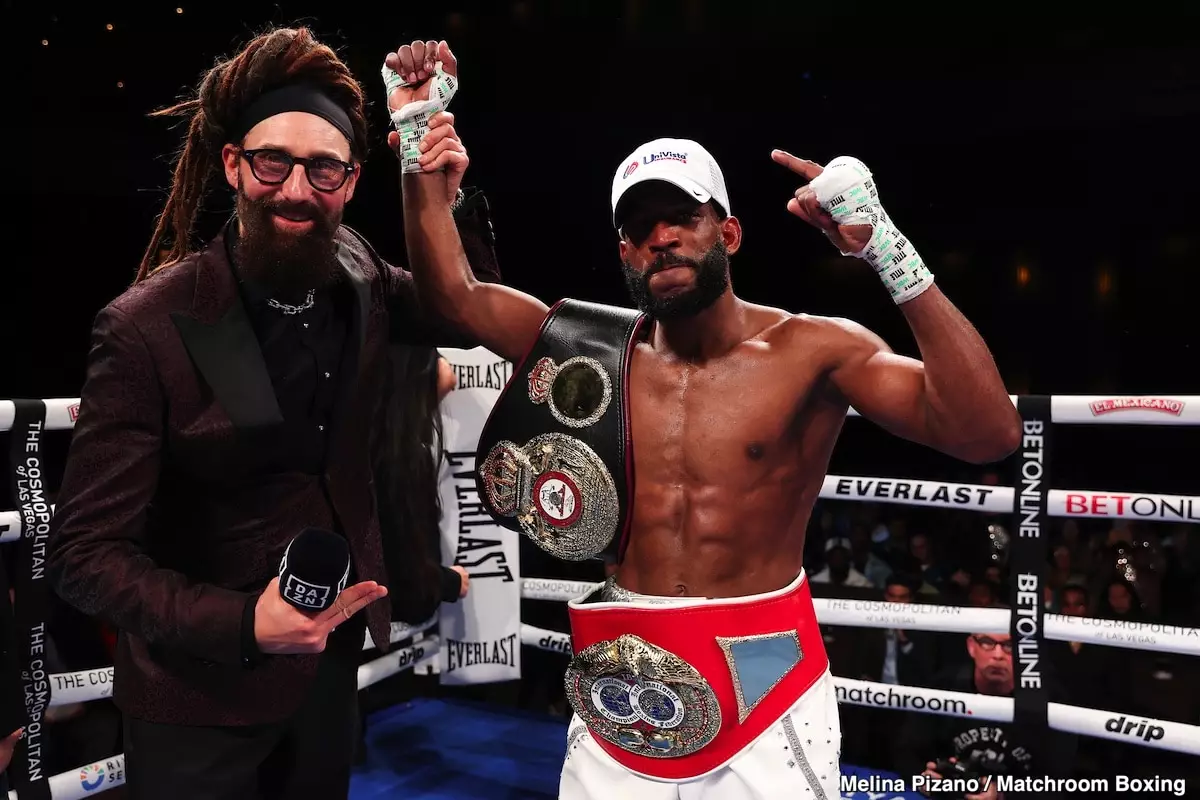Andy Cruz has emerged from the shadows as a formidable force in the boxing world, driven by an insatiable thirst for competition. With a record of 5-0, including 2 knockouts, the 2020 Olympic gold medalist is refusing to be silent in a sport that often rewards patience over aggression. Cruz’s newfound villain persona is captivating—he not only aims to elevate his profile but also to provoke high-profile adversaries like Keyshawn Davis and Abdullah Mason into the ring with him. In a sport where the loudest often get the fights, Cruz has embraced the role of the provocateur, unapologetically calling out those he believes are too timid to face him.
A Challenge to Fearlessness
Cruz’s contentious relationship with Keyshawn Davis deserves particular attention. He has stated, rather boldly, that Davis is “scared” to face him, referencing a historical dominance over Davis in their amateur bouts. The psychological gamesmanship is both strategic and dangerous; by labeling Davis as fearful, Cruz seeks to unsettle him. While some might dismiss this as mere bravado, it reveals a deeper truth about the psyche in competitive sports. Confidence is crucial, and Cruz is not just showcasing it loudly—he’s demanding a showdown to validate his claims. His confidence, however, is built on a foundation of past victories, which adds weight to his taunts.
The Reluctance of Promoters
Interestingly, promoter Eddie Hearn, who represents both Cruz and WBC lightweight champion Shakur Stevenson, seems hesitant to match the two formidable fighters against each other. This indicates a calculated decision based on perceived risk. Hearn’s reluctance suggests a belief that Cruz could topple Stevenson, which complicates potential matchmaking opportunities for Cruz. This presents an interesting dilemma: should a promoter prioritize financial gains over the authenticity of competition? Hearn’s decision effectively sidelines a high-stakes matchup that could thrill fans and elevate Cruz’s stature.
Strategic Movements in Weight Class
As Cruz looks toward his future, the discussion about moving up to light welterweight becomes increasingly relevant. His current lightweight division may serve as a double-edged sword, offering both safety and stagnation. If the upper echelon of the lightweight category continues to avoid him, moving up could be the answer to accessing more competitive and rewarding fights. The risk of stepping into a new weight class is inherent, but Cruz’s ambition might compel him to take that leap of faith. In a combat sport, staying relevant often requires adapting and responding to the battlefield around you.
Psychological Warfare in Boxing
Cruz’s taunts are not mere words; they embody a complex blend of strategy and showmanship. The psychological warfare involved in boxing can lead fighters into fierce rivalries that not only engage fans but also escalate the stakes of the sport itself. With his assertions on social media, Cruz is cleverly playing a dangerous game where one misstep could lead to diminished opportunities or, conversely, a breakout moment in his career. The tension between the fighters and the maneuvering of their teams creates an electric atmosphere that could ignite a blockbuster match—if only those involved dare to engage.
In sum, Andy Cruz’s aggressive calls for fights highlight both his ambition and the often-challenging landscape of professional boxing. His tenacity forces consideration of broader issues—fear, strategy, and the roles played by both fighters and promoters in shaping the trajectory of a fighter’s career. In a sport fueled by rivalry and spectacle, Cruz’s story is just beginning.


Leave a Reply